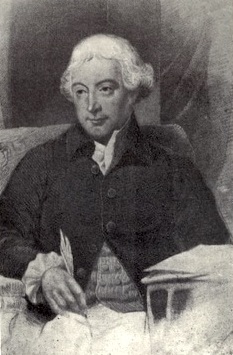Battle at Chignecto
| Battle at Chignecto | |||||||
|---|---|---|---|---|---|---|---|
| Part of Father Le Loutre’s War | |||||||
 Charles Lawrence |
|||||||
|
|||||||
| Belligerents | |||||||
|
Mi'kmaq militia Acadian militia |
|
||||||
| Commanders and leaders | |||||||
|
Jean-Louis Le Loutre Louis de La Corne Joseph Broussard (Beausoliel) Chief Étienne Bâtard |
Charles Lawrence John Gorham Captain John Rous Horatio Gates Captain William Clapham John Salusbury Joseph Gorham Joshua Winslow John Brewse (wounded) Francis Bartelo † |
||||||
| Strength | |||||||
| 300 Mi'kmaq and Acadian militia | 700 British regulars and New England Rangers | ||||||
| Casualties and losses | |||||||
| unknown | 20 killed | ||||||
The Battle at Chignecto happened during Father Le Loutre’s War and was fought by 700 troops made up of British regulars led by Charles Lawrence, Horatio Gates, Rangers led by John Gorham and Captain John Rous led the navy. This battle was the first attempt by the New Englanders to occupy the head of the Bay of Fundy since the disastrous Battle of Grand Pré three years earlier. They fought against a militia made up of Mi’kmaq and Acadians led by Jean-Louis Le Loutre and Joseph Broussard (Beausoliel). The battle happened at Isthmus of Chignecto, Nova Scotia on 3 September 1750.
Despite the British Conquest of Acadia in 1710, Nova Scotia remained primarily occupied by Catholic Acadians and Mi'kmaq. By the time Cornwallis had arrived in Halifax, there was a long history of the Wabanaki Confederacy (which included the Mi'kmaq) protecting their land by killing British civilians along the New England/ Acadia border in Maine (See the Northeast Coast Campaigns 1688, 1703, 1723, 1724, 1745, 1746, 1747).
To prevent the establishment of Protestant settlements in the region, Mi'kmaq raided the early British settlements of present-day Shelburne (1715) and Canso (1720). A generation later, Father Le Loutre's War began when Edward Cornwallis arrived to establish Halifax with 13 transports on June 21, 1749. By unilaterally establishing Halifax the British were violating earlier treaties with the Mi'kmaq (1726), which were signed after Father Rale's War.
...
Wikipedia
